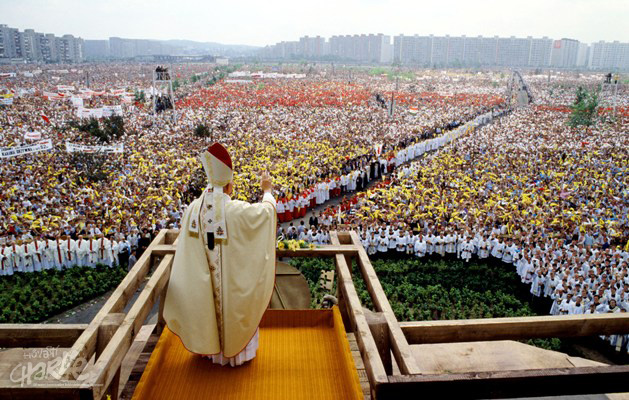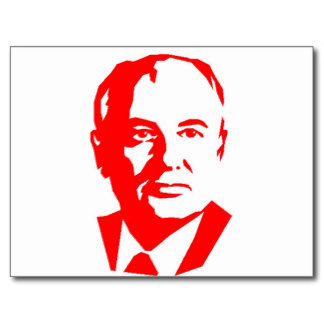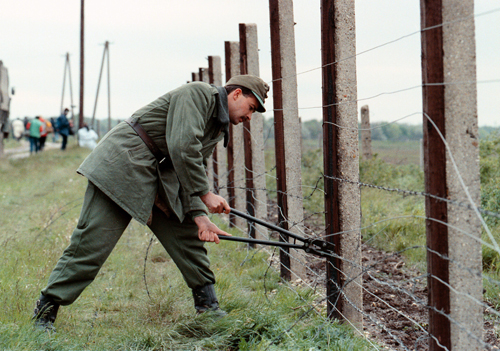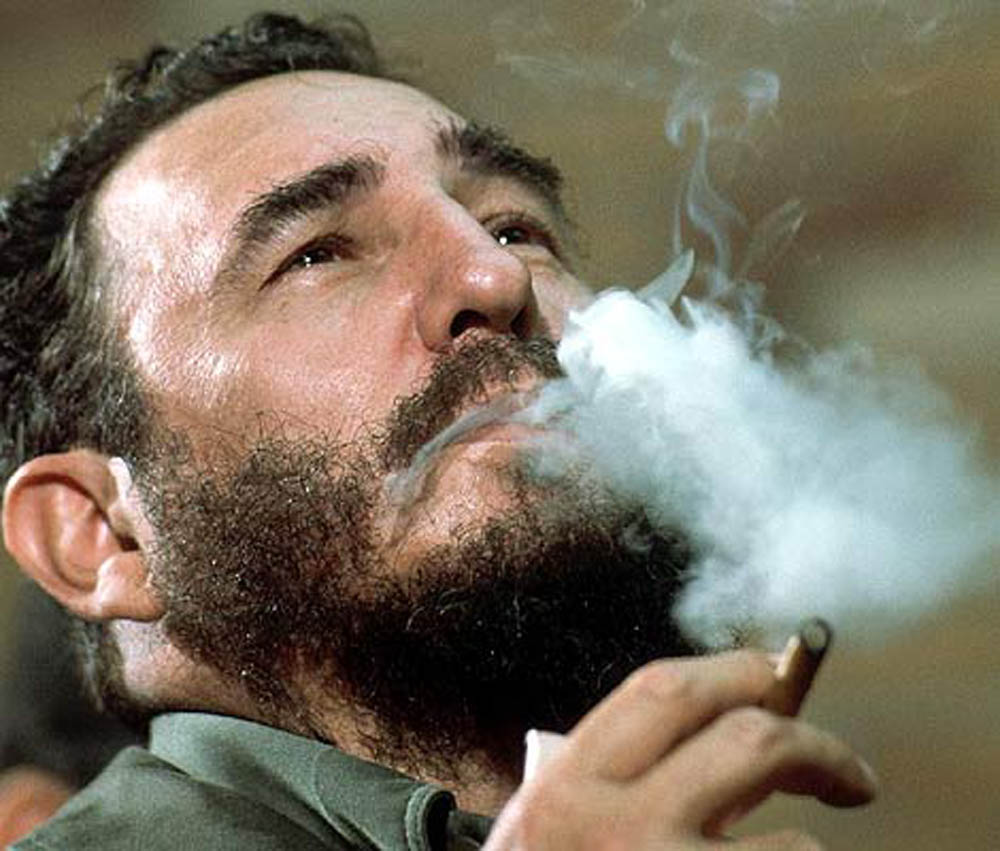33. LECTURE: Wednesday, April 8

Two Challenges to Communism in Poland. It is impossible to understand the fall of communism in Europe after 1989 without addressing the impact of both Karol Józef Wojtyła’s ascendancy to the Throne of St. Peter in 1978 and the formation of the independent Polish trade union movement, Solidarity (Solidarność), in 1980.
- Homily of his Holiness John Paul II, June 2, 1979, Warsaw, Poland (look for the potentially incendiary issues in this homily): HERE
- Solidarity’s “The 21 Demands” (August 31, 1980) HERE (Print and Read)
- Program of the First Solidarność National Congress (October 7, 1981): HERE (Print and Read)
Your second essay assignment is HERE
34. DISCUSSION SECTION: Friday, April 10
In this section, we will discuss the second half of Havel’s “Power of the Powerless” and ask whether its argument is relevant to the case of Poland
35. LECTURE: Monday, April 13
 Gorbachev’s Revolution of Reform. Mikhail Gorbachev’s calls for “perestroika” (economic restructuring) and “glasnost” (openness) were a cause for unparalleled excitement. Check out the two videos here. Yet, rather than leading to a truly reformed version of socialism, the reforms ultimately resulted in revolution against the system and the death of Marxism-Leninism.
Gorbachev’s Revolution of Reform. Mikhail Gorbachev’s calls for “perestroika” (economic restructuring) and “glasnost” (openness) were a cause for unparalleled excitement. Check out the two videos here. Yet, rather than leading to a truly reformed version of socialism, the reforms ultimately resulted in revolution against the system and the death of Marxism-Leninism.
- Plenary Session of the Central Committee of the CPSU, January 28, 1987: HERE (Print and Read)
-
Trabant Crash Test: HERE
-
“Z” (Martin Malia), “To the Stalin Museum,” Daedalus, 119, 1 (1990): section IX.
-
“Stories and Totalitarianism,” in Vaclav Havel, Open Letters, pp. 328-50.
36. LECTURE: Wednesday, April 15
Violence Amidst Reform in China. Was the use of force against student protesters on Tian Anmen square, as well as around Beijing and in other major cities, “déjà vu all over again”? Or have China’s reforms over the past three decades signified something new about world communism?
-
Deng Xiaoping’s educational policy: HERE
-
Editorial: “It is necessary to take a clear stand against disturbances,” People’s Daily, April 26, 1989: HERE (Print and Read)
-
Deng Xiaoping, “Address to officers of the troops enforcing martial law in Beijing,” June 9, 1989: HERE
-
Previously secret: CIA analysis of the speech (declassified, but it’s amusing to see what’s left): HERE
-
Tian Anmen Square: HERE
37. DISCUSSION SECTION: Friday, April 17
In this section, we will return to the familiar question: “Is it possible to reform communism.
38. LECTURE: Monday, April 20

Gorbachev was not alone. His reforms helped to accelerate significant shifts in domestic policies that were already underway in countries like Hungary and Poland. Yet when Gorbachev’s efforts proved to be unworkable, these governments had to decide whether they would continue with reform or simply move on to something entirely new.
- “Z” (Martin Malia), “To the Stalin Museum,” Daedalus, 119, 1 (1990): section X. (Course Reader)
-
“Meeting Gorbachev,” in Vaclav Havel, Open Letters, 351-354.
39. LECTURE: Wednesday, April 22
Those who refuse to learn . . . . are punished by history. In this lecture, I will address the fall of the Berlin Wall and the ensuing collapse of communism in East Europe by describing my own experiences in East Germany in the late 1980s.
-
“Testing Ground,” in Vaclav Havel, Open Letters, pp. 373-376.
-
Previously secret: Record of Conversation between Mikhail Gorbachev and the politburo of the Socialist Unity Party of East Germany, October 7, 1989: HERE
-
A. James McAdams, The Idea of the Communist Party (forthcoming), Chapter 12. In your READER
40. DISCUSSION SECTION: Friday, April 24
A discussion on the nature of “historical change”
41. LECTURE, Monday, April 27
Others learned from history what we didn’t want them to learn . . . . and somehow managed to survived. China, North Korea, and Cuba engaged in retrenchment, but significantly ‘retrenchment’ meant different things to each of them. Also, one can legitimately ask whether these are still communist states.

-
An interview with Fidel Castro, “Blaming Stalin for everything would be historical simplism,” June 3, 1992: HERE
- A new and most dangerous class enemy in Cuba: HERE
- Chinese General Secretary Xi Jinping, Document 9: HERE
Your final essay assignment is HERE
42. LECTURE: Wednesday, April 29
The Autopsy is Finished. We return to where we began. I seek to make sense of the “long, strange trip” that was world communism. Some experts say that Lenin is dead. I am not so sure.
THE END
The use of electronic devices of any kind, including laptops, cell phones, video cameras, and personal digital devices, as well as those I don’t even know about, is prohibited in my classroom!
